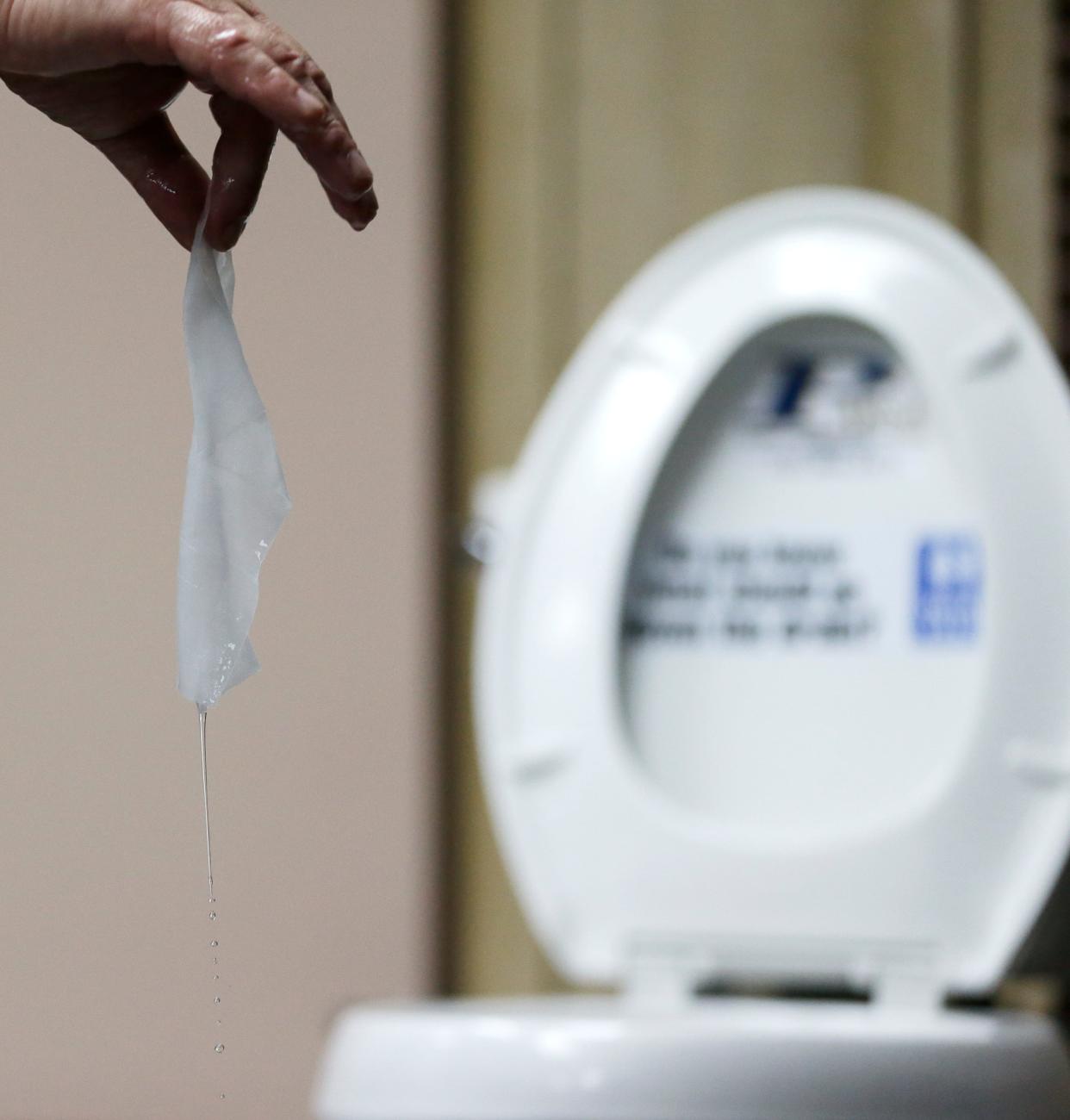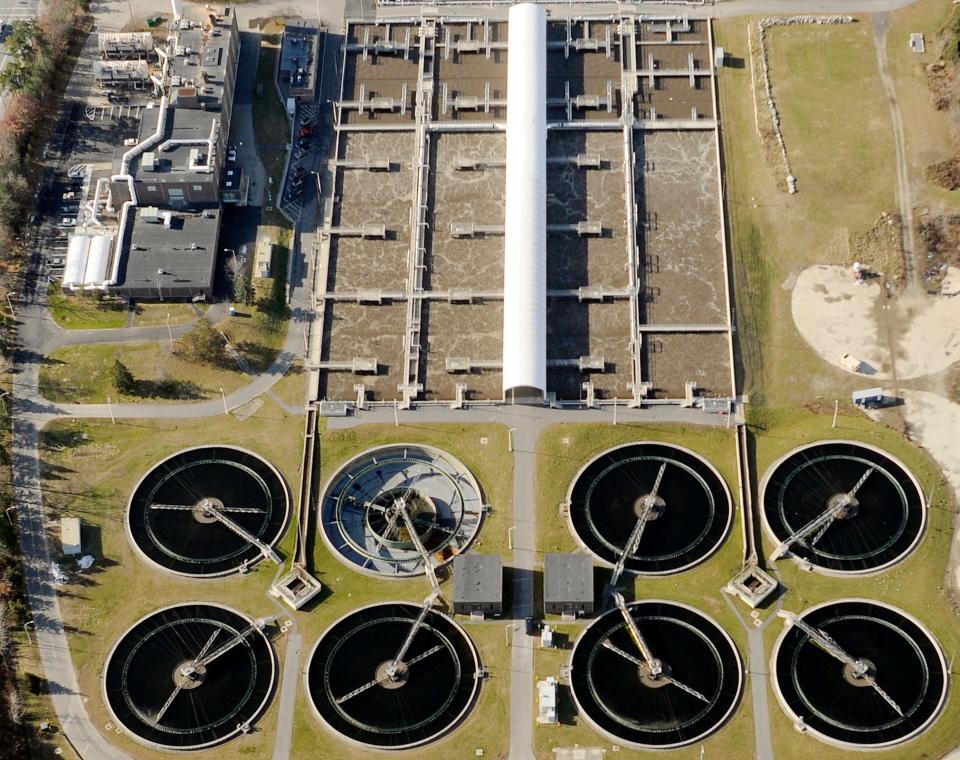Don't flush those wipes: Mass. lawmakers seek new labeling for personal use toilet products

Correction: The legislation would cover wipes that are entirely of or partly made from petrochemical-derived fibers, and not specifically wipes that are currently marketed as "flushable," as an earlier version of this story reported.
It turns out many frequently used wipes, regardless of their intended use, are not so flushable. And members of the state Legislature want to clarify their labeling.
Issues with wipes that started pre-pandemic were exacerbated by COVID-19, the lack of toilet paper and the rush to wipe everything.
“These wipes, when they are introduced into the wastewater infrastructure, can do serious damage,” said state Rep. Sean Garballey, D-Arlington. The legislator has filed a two-pronged bill requiring a new label that would indicate the product should not be flushed down the toilet, as well as a public education campaign about the issue.
The legislation is targeting "either a premoistened nonwoven disposable wipe marketed as a baby wipe or diapering wipe or a premoistened nonwoven disposable wipe that is both of the following: (a) composed entirely of or in part of petrochemical-derived fibers; and (b) likely to be used in a bathroom and has significant potential to be flushed, including baby wipes, bathroom cleaning wipes, toilet cleaning wipes, hard surface cleaning wipes, disinfecting wipes, hand sanitizing wipes, antibacterial wipes, facial and makeup removal wipes, general purpose cleaning wipes, personal care wipes for use on the body, feminine hygiene wipes, adult incontinence wipes, adult hygiene wipes, and body cleansing wipes."
We’re not talking wash cloths.
A group called Responsible Flushing Alliance details the difference between "flushable" wipes, made from plant-based fibers and those designed to be discarded in the trash, made completely or partially with synthetic fibers. The material does not disintegrate (like bathroom tissue) and forms a mass that blocks wastewater treatment equipment or ends up killing a leech field in septic systems.
Wipes damage both sanitary sewer systems, septic systems
We’re talking serious damage to both sanitary sewer systems and septic systems, and serious money to fix.
“It costs $40,000 to replace a septic system in Massachusetts,” said Ronald Spraske, of American Sewerage and Septic in Leicester. He described a septic system as a “living eco-system that depends on the microbes in human digestive systems to break down the solids that find their way into the septic tank."

In a private septic system, an average four-bedroom home in Massachusetts relies on a 1,500 gallon system. The wipes form a giant mat at the top of the septic tank. That layer of non-woven petrochemical fibers, creates a layer that prevents the microbes from performing their function.
“The solids are not touched by the bacteria,” Spraske said.
In more technical language: There’s three layers in a septic tank — the bottom is called the sludge layer, the top is the scum layer and in the middle is liquid.
“About 90% of the clogs I deal with are caused by an over-abundance of wipes around the incoming pipes,” Spraske said. “The scum layer gets so thick; it has no time to work on the solids and pushes undigested solids into the leech field causing the field to die.”
Apparently, we’re talking killer wipes.
After pumping out a tank, Spraske delivers the effluent to one of the regional treatment facilities where the “rags” can get caught in the headworks. That increases sewerage costs for municipalities by damaging equipment and needing to hire employees to clean the clogs from the pipes and the pumps.
“There’s a financial cost,” said Michael Boudreau, Natick’s director of public health. The community posts information about the havoc wreaked by wipes on its website.
Basically, the material collects in the pipes and the municipality dedicates hundreds of man hours to the job of unclogging the pumps. Repairing a grinder pump starts at $5,000. Replacing it costs $80,000. Repairing a sewer line can cost residents up to $7,000. That cost, in time, salary and damages, is passed on to residents in their sewer and water bulls.
Until the industry creates wipes that are truly flushable, Garballey wants manufacturers to re-label products to include a big, highly visible symbol that indicates the wipes do not belong in the toilet.
The bills, filed by Garballey in the House and state Sen. Jamie Eldridge, D-Acton, in the Senate, would allow a lead time to re-label the merchandise and educate the public.
This article originally appeared on Telegram & Gazette: New labels for wipes would indicate they should stay out of toilets

